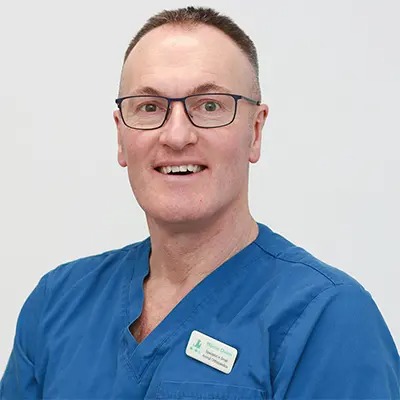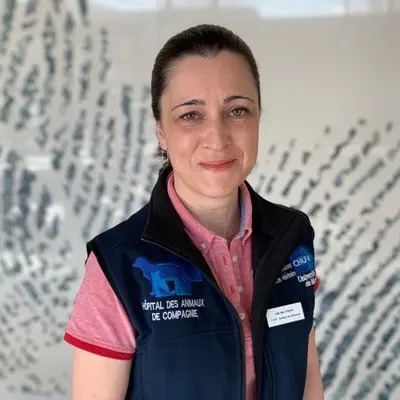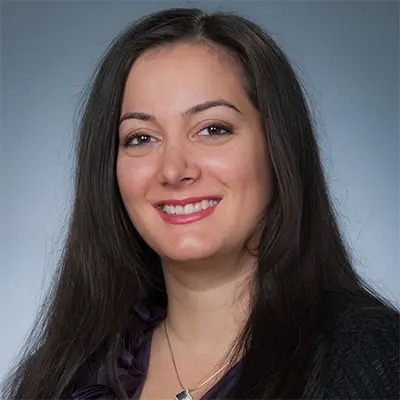Tricky Fractures that Could be Missed... Case Examples
Species
Small Animal
Contact Hours
3 Hours - RACE Approval Pending
Early Booking Deadline
Sat, 13 July, 2024
Registration Deadline
Thu, 01 August, 2024
Language
English
Discipline
Anaesthesia & Pain Management
Diagnostic Imaging
Emergency & Critical Care
Orthopaedics
Surgery
Veterinary Partners
Global



Recorded: 14th August, 2025
Panelists:
Chris Lamb MA, VetMB, MRCVS, DACVR - Consultant, UK
Sarah Malek DVM, PhD, DACVS(SA) - Purdue University, USA
Martin Owen BVSc, BSc, PhD, DSAS(Orth)., DECVS, MRCVS - East of England Veterinary Specialists, UK
Moderator:
Mila Freire DVM, PhD, DACVS(SA) - University of Montreal, Canada
PANEL DISCUSSION DESCRIPTION
Some fractures in small animal surgery can be particularly challenging to identify. Accurate diagnosis is essential, as it guides appropriate treatment planning and allows for a more reliable prognosis. In certain cases, the diagnosis may remain uncertain initially, but identifying the need for follow-up diagnostic imaging is already a valuable step forward.
These so-called "tricky" fractures may include:
- Greenstick fractures, in which the periosteum remains intact;
- Chip or slab fractures within joints, where overlapping bone structures can obscure the lesion;
- Avulsion fractures;
- Stress or fatigue fractures, which may be incomplete and subtle on imaging;
- Impaction or compression fractures, often affecting the vertebrae;
- (Sub)luxation fractures, which involve concurrent soft tissue injury leading to instability or displacement;
- Salter–Harris fractures and other physeal (growth plate) injuries;
- Pathological fractures associated with underlying disease processes.
In many of these cases, a combination of diagnostic tools—such as radiography, ultrasound, and CT—may be necessary to reach a definitive diagnosis.
Dr Freire obtained her veterinary degree at the Complutense University of Madrid. She then pursued further training in veterinary surgery through a general internship at Ohio State University (2006) and a small animal surgery residency at North Carolina State University (2011). She completed a Research Fellowship in feline ostearthritis (2008) and she earned her PhD, presenting a dissertation on Feline Degenerative Joint Disease in 2014. She is a Faculty Member of the AO Vet North America (AONA Vet) participating in continuing education of Principles of Fractures fixation courses.
Christopher R. Lamb graduated from the University of Cambridge and completed his residency at Tufts University School of Veterinary Medicine. He was Board-certified in 1988. Chris continued at Tufts University as Assistant Professor before returning to England in 1990 to work in small animal referral practice in London. In 1992 he joined The Royal Veterinary College, University of London. Chris has helped train many residents, has over 200 publications covering most aspects of diagnostic imaging, has had various roles for the ACVR and ECVDI, and is an active CPD provider. He retired from The RVC as Professor of Radiology in 2019. He now works part-time as a Consultant for Antech Imaging Services.
Sarah Malek is an Associate Professor of Small Animal Orthopedic Surgery at the Purdue University College of Veterinary Medicine. She earned her Doctor of Veterinary Medicine (DVM) degree from the University of Tehran in Iran, followed by rotating and specialty internships in Canada and the United States. She then completed a residency in small animal surgery and a Ph.D. in biomedical sciences at the Atlantic Veterinary College, University of Prince Edward Island.
She became board-certified in small animal surgery by the American College of Veterinary Surgeons (ACVS) in 2016. She is an active faculty member with AO VET North America (AO VET NA) and a frequent lecturer at both national and international veterinary conferences. She also serves as a laboratory instructor in courses focused on basic and advanced fracture repair and arthroscopic procedures in small animals.
Her clinical interests center on musculoskeletal disorders in dogs and cats, with particular emphasis on joint disease treatment and fracture management using minimally invasive techniques. Her research focuses on disease pattern recognition through infrared spectroscopy, the identification of disease biomarkers, and translational studies in osteoarthritis affecting both canine and human patients.
More Info
Martin Owen
BVSc, BSc, PhD, DSAS(Orth)., Dipl.ECVS, MRCVS
East Of England Veterinary Specialists, UK


Martin graduated from Liverpool Veterinary School in 1992 and worked in small animal practice before completing a PhD at the University of Liverpool. He began his surgical career with a residency at Liverpool before completing his specialist training in Orthopaedics at Glasgow University. He subsequently became Lecturer, then Senior Lecturer in Orthopaedics and the Senior Orthopaedic Surgeon at Bristol Veterinary School. In 2009, Martin joined Dick White Referrals, a multidiscipline specialist veterinary hospital in Suffolk, where he was Head of the Orthopaedic service and latterly Head of Surgery until September 2016.
Martin has chaired both the scientific committee of the British Veterinary Orthopaedic Association and the Programme committee for the European College of Veterinary Surgeons. He has also chaired the examination committee for the Royal College of Veterinary Surgeons diploma examination in Small Animal Orthopaedics. He has lectured at international, national and local veterinary meetings and congresses and educated veterinary practitioners and surgeons in training and trained more than 15 residents to specialist status themselves.
Martin enjoys all aspects of small animal orthopaedics, but has particular interests in cranial cruciate ligament disease, elbow dysplasia, joint replacement and trauma management. He still enjoys the challenge of contributing to studies whilst keeping busy in the clinic.
More InfoQualified Vet
Online Panel Discussion
USD 110.00
Intern/Resident/PhD (Requires proof of status)
Online Panel Discussion
USD 80.00
Vet Nurse/Vet Tech (Requires proof of status)
Online Panel Discussion
USD 80.00
Veterinary Student (Requires proof of status)
Online Panel Discussion
USD 20.00
If the options you are looking for are unavailable, please contact us.
No tax will be added unless you are a UK taxpayer
Choose currency at checkout
















